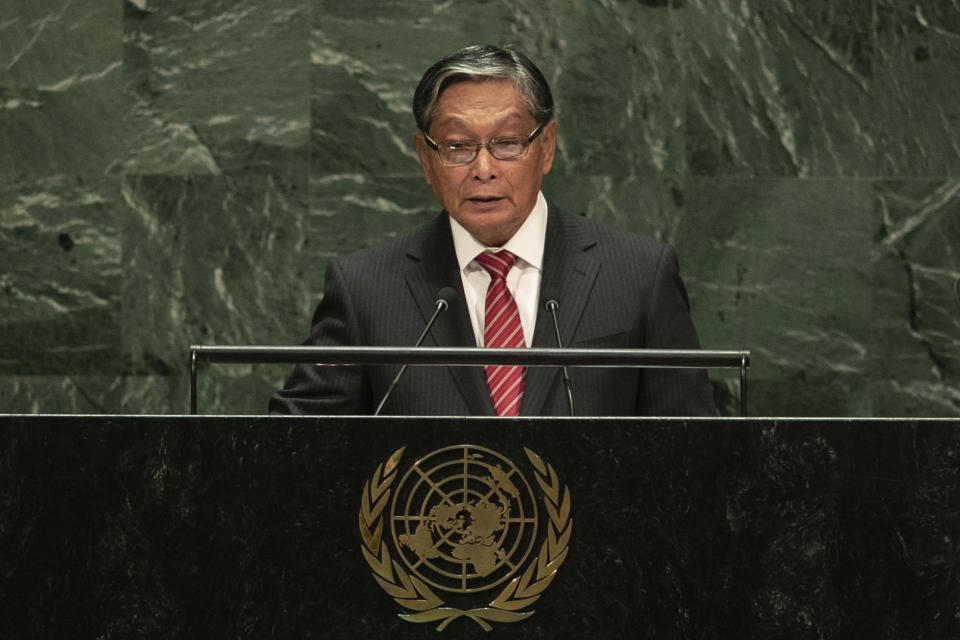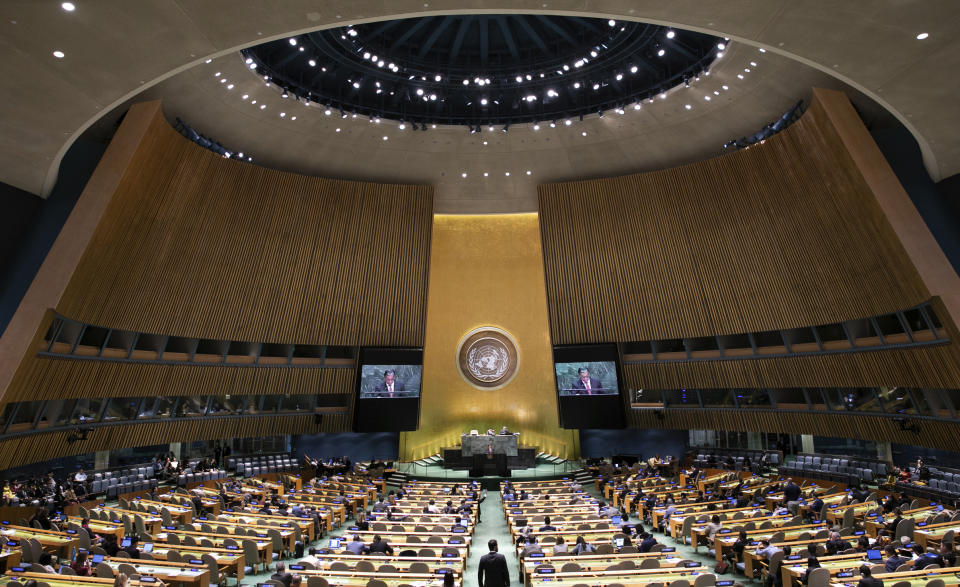UNITED NATIONS (AP) — Wary of international interference, Myanmar insisted Saturday it wants Rohingya Muslim refugees who fled to neighboring Bangladesh repatriated to their former homes so they can live in a "more conducive environment" than the one they left. But it said such a relocation must take place under controlled conditions.
Kyaw Tint Swe, Myanmar's minister for the office of the state counselor, said in his nation's address at the U.N. General Assembly that Myanmar is working with Bangladesh and the U.N. to find "long-term and practical solutions" to bring home some of the more than 740,000 Rohingya in the country's Rakhine state, which borders Bangladesh.
"We fully share the concern of the international community over the violence that affects communities in Rakhine," Kyaw Tint Swe said. "Our priority now is to expedite repatriation and to create a more conducive environment for verified returnees."
He also warned of "destructive movements in the camps aimed at preventing repatriation."
Myanmar's military began a harsh counterinsurgency campaign against Rohingya Muslims in August 2017 in response to an insurgent attack. Hundreds of thousands of Rohingya fled what has been called an ethnic cleansing campaign involving mass rapes, killings and burning of their homes. Many of them are residing in camps in and around Cox's Bazar, a Bangladeshi town near the border with Rakhine.
Last year, the U.N.-established Independent International Fact-Finding Mission on Myanmar recommended the prosecution of top Myanmar military commanders on charges of genocide, war crimes and crimes against humanity. Myanmar has rejected the allegations.
Four years after a civilian government in Myanmar officially replaced decades of military rule, Kyaw Tint Swe said that "transformation from authoritarianism to a democratic system is a daunting challenge." Nonetheless, he rejected notions that the conditions around Rohingya repatriation be set by anyone but Myanmar and Bangladesh. The two nations signed an agreement in late 2017 to address the issue but repeated attempts at repatriation have failed because the Rohingya refuse to return without security guarantees.
"Issues between neighbors can and must be resolved bilaterally in an amicable and friendly manner," Kyaw Tint Swe said. "There have been persistent calls to put pressure on Myanmar. There is also a call to set up a 'Safe Zone' inside Myanmar. Such a demand is neither warranted nor workable."


